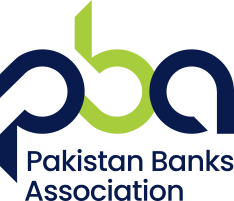Digital Banking in Pakistan
Covid-19 has prompted a strong shift in behaviour of bank customers towards digital banking in Pakistan. Though Pakistan is still heavily reliant on cash transactions with customer preference remaining on COD (Cash on delivery) options, the trend of Digital Financial Services used by internet users reflects a promising future for Digital Financial services in Pakistan

Admittedly, the Covid 19 situation has had a lot to do with altering bank users’ attitudes regarding digital banking. To keep the banking systems operating in a seamless manner during the Corona crisis, financial institutions (FIs) took several emergency measures to mobilize digital processes following the lockdown. The State Bank of Pakistan added its support by announcing regulatory relief measures to support branchless transactions and the Government of Pakistan relief package was also disbursed through mobile and other digital modes to discourage the physical use of cash.
The banking industry’s response to the extraordinary situation and the resultant surge in digital banking, shows Pakistan to be well placed in digital banking, and its role in innovating digital financial solutions. Some areas of focus include;
Digitalization of Banking Models
Pragmatic, digital banking models are essential for effective Business Continuity Plans for sustainability. Banks are working at repositioning and optimizing branch network, while providing more services to customers through digital (and secure) channels at their fingertips.
Cloud managed services
With SBP’s support via, ‘Enterprise Technology Governance and Risk Management Framework for Financial Institutions,’ and its recent approval on ‘Outsourcing to Cloud Service Providers’ investments on cloud infrastructure and SaaS (Software as a Service); Platform as a Service (PaaS) and Infrastructure as a Service (IaaS), are being pursued for secure future digitalization ventures.
The future for Pakistani banks in the global, digital landscape is promising. FIs are adapting to the changes and adjusting their administrative procedures by minimizing paper documentation; people are financially more literate; the regulators are inclusive and adaptive and masses appear to be more inclined to adopt digitalized banking as a part of life. With the commitment of all stakeholders to ensure efficiency, transparency and reduced risk for bank customers, along with the government’s support to upgrade infrastructure, Pakistan is getting well positioned in the digitalized age of banking.
